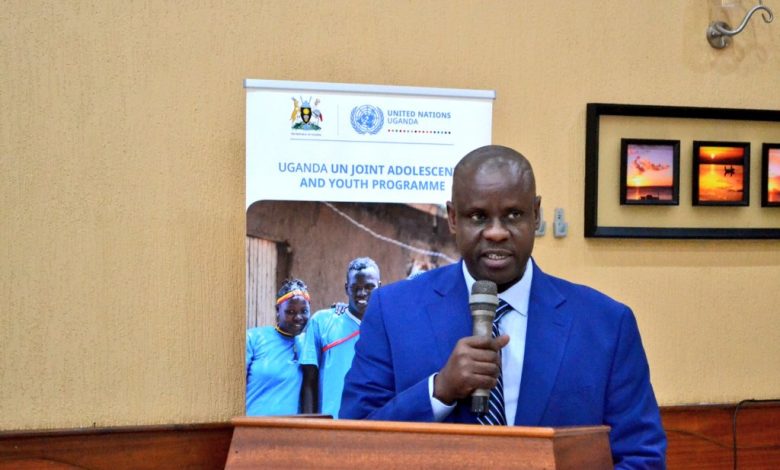
Uganda needs evidence-based solutions for youth unemployment — Balaam
The state minister for youth and children affairs, Balaam Barugahara has said Uganda needs to devise evidence-based solutions to tackle the high unemployment rate among youths.
He was speaking at a function where findings of research conducted on youth unemployment in Uganda were unveiled.
The report was produced by the School of Economics at Makerere University. The research project aimed to review Uganda’s youth employment policies, legislation, and programs, identifying best practices for promoting youth employability, productivity, and opportunities.
Barugahara said there are untapped opportunities, such as the entertainment industry, which can employ many youths.
He said there is need for further research on specific models such as the four-hectare model which could better support self-employed youth.
“There are many youths who are self-employed but receive no support,” he said, advocating for more evidence-based social protection policies.
Prof Edward Bbaale, the Principal of the School of Economics, Makerere University, pointed out that many youth employment programs are too homogeneous, failing to address the diverse needs of young people.
“The programs often neglect operational support such as adequate training, beneficiary preparation, and follow-up,” Bbaale said.
Dr Peter Babyenda, a lecturer at the School of Economics, Makerere University, who presented the report, stressed the multifaceted challenges facing youth.
These include limited access to education, inadequate skilling, poor health, and gender inequality.
The study recommended continuing initiatives like the Youth Venture Capital, Youth Livelihood Program, the Women Empowerment Fund, and the Youth Apprenticeship Program (YAP).
It also called for the standardization of technical and vocational education to align with international standards and local job market needs.
Winner Jeanette, the gender statistics officer at UN Women, pointed out that the care economy, which employs many women, has significant potential for economic growth.
“The care economy can bring investments into the country,” Jeanette said.
Angel Nsangi, a legal associate at the Innovation Village, raised concerns about limited access to markets for Ugandan products.
“Some products do not meet market standards and cannot access the market. E-commerce platforms are crucial for improving youth employment policies,” Nsangi explained.
Cathy Mbidde, the manager at Makerere University’s Innovation Port, emphasized the need for a stronger link between research, innovation, and commercialization.
“We must support the entire innovation and employment value chain,” Mbidde said, noting that while many youths are skilled, they often lack the support to take their products to market.
The recommendations from the report call for more investment in skilling, entrepreneurship, and market access, as well as a holistic approach to youth employment that incorporates evidence-based policies and regional needs. If implemented effectively, these measures could help unlock the potential of Uganda’s youth, fostering economic growth and reducing unemployment.



